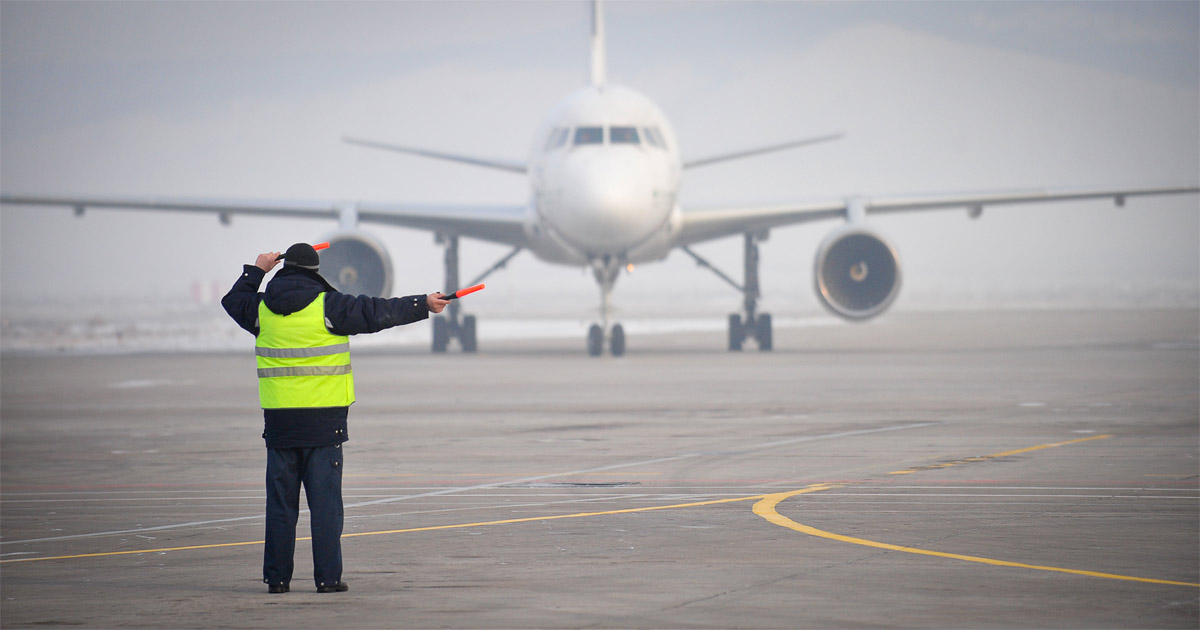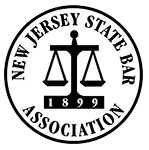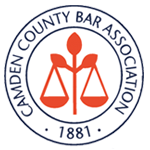Airport workers have one of the most dangerous jobs in the country. Unsafe working conditions, such as hazardous exposure and lack of training, put airport workers at risk of injury, various health conditions, or death. The COVID-19 global pandemic has placed them at even greater risk and depending on the type of work being performed, airport workers must take additional precautions. The Occupational Safety and Health Administration (OSHA) has released interim general guidance for all workers, as well as for those at increased risk of exposure to COVID-19, including airline and airport workers.
How can Airline Workers Prevent the Spread of COVID-19?
OSHA’s general guidance advises workers to frequently wash their hands, avoid touching their eyes, nose, or mouth, cover their coughs and sneezes, stay home if they are feeling ill, and avoid close contact with those who are sick. Employers are advised to assess and monitor workplace hazards and provide workers with the appropriate personal protective equipment (PPE) to help prevent the spread of COVID-19.
A worker’s risk of contracting COVID-19 depends on his or her job tasks; those whose jobs require frequent contact with people who may be infected, such as airport workers, are at a higher risk than those whose jobs do not require frequent contact with the public, such as remote workers.
The Centers for Disease Control and Prevention (CDC) recommends that all people wear cloth face coverings in public settings and practice social distancing. Depending on a worker’s specific job duties, he or she may be advised to take additional precautions. The CDC has released fact sheets for several types of airport, airline, and transit workers, including:
- Airline customer service representatives, gate agents, and airport passenger assistance workers. These workers come in close contact with people who potentially have COVID-19 and their belongings. They are therefore advised to maintain a distance of at least six feet whenever possible, allow passengers to hold their own documents and scan their own boarding passes, practice routine cleaning and disinfection of frequently touched surfaces, and follow proper hand hygiene.
- Catering kitchen staff, truck drivers, and airport retail or food service operators. Airline kitchen workers can protect themselves by using gloves when handling non-disposable food items and cleaning their hands at key times, including before, during, and after preparing food; before eating food; after using the toilet; after blowing their nose, coughing, or sneezing; before and after work shifts and breaks; and after handling frequently touched items, such as food service carts, food service items, and solid waste.
- Airport maintenance workers. Aircraft maintenance workers are advised to wear their normally required PPE when making repairs in the passenger cabin area and follow standard practices when performing work tasks that could expose them to untreated waste and wastewater. They should also avoid using compressed air or water sprays to clean surfaces as they may aerosolize potentially infectious material, according to the CDC.
- Airport baggage and cargo handlers. The CDC reports that a person may contract COVID-19 by touching a surface or object that has the virus on it and then touching his or her mouth, nose, or eyes. Therefore, baggage and cargo handlers should practice proper hand hygiene when handling other people’s belongings.
- Airport custodial staff. According to the CDC, the general risk is low for this type of worker, however there are risks involved with handling solid waste and cleaning public facilities with which a COVID-19-infected person has had contact. Therefore, airport custodial staff should wear disposable gloves while performing their job duties, routinely clean and disinfect frequently touched surfaces, and conduct routine laundering of their work clothes or uniform.
- Bus and rail transit operators, maintenance workers, and transit station workers. For these types of workers, potential sources of exposure include contact with surfaces touched by someone with COVID-19. Therefore, cleaning and disinfecting of all frequently touched surfaces in the transit vehicle and at the transit station should be performed on a regular basis.
Do Employers Need to Provide Employees with Safe Workplaces?
Under the Occupational Safety and Health Act (OSH Act), employers have a duty to provide safe workplaces free from recognized hazards and they must comply with all OSH Act standards, rules, and regulations. According to the CDC, employers should develop a COVID-19 health and safety plan to protect employees. That plan should be communicated to employees, and employers should take certain steps to prevent the spread of COVID-19 in the workplace, such as:
- Educating employees about COVID-19, including how to recognize symptoms and what to do if they develop symptoms
- Implementing flexible sick leave and other supportive practices
- Conducting worksite assessments and developing policies for worker protection and training
- Developing policies for identification of sick passengers and coworkers
- Designating a contact person to respond to COVID-19 concerns
- Providing training on proper handwashing practices, along with access to soap and water and alcohol-based hand sanitizers, disposable disinfectant wipes, and tissues
- Cleaning common areas frequently
- Encouraging employees to stay home, if sick
- Identifying sick travelers and reporting those with COVID-19 symptoms to the CDC
- Establishing ongoing communications with local public health officials
- Following the applicable federal regulations and public health agency guidelines
What Other Hazards Do Airport Workers Face?
Airport and airline workers are not only at risk of contracting COVID-19, but they also face other hazards on the job, including:
- Lifting heavy objects: Ramp agents, ground crew, and other types of airport workers frequently lift heavy objects and are therefore at risk of developing musculoskeletal disorders (MSDs) and other repetitive strain injuries.
- Struck-by accidents: Airport employees may be injured in struck by accidents caused by heavy machinery, trucks, and other airport vehicles.
- Hazardous exposure: Baggage handlers, cabin cleaners, and other types of airport workers are exposed to various hazards in the workplace, including loud noises, chemicals, blood borne pathogens, diesel emissions, and carbon monoxide.
- Temperature extremes: The New York Committee for Occupational Safety and Health (NYCOSH) reports that many airport workers are regularly exposed to extreme heat and cold, which, without the proper protective measures, may cause conditions resulting in cognitive impairment or death.
- Lack of training: Even though airport employers must follow OSHA standards regarding health and safety training, many do not, leaving workers at increased risk of being injured on the job or contracting workplace illnesses.
Workers’ Compensation in New Jersey
All New Jersey employers not covered by federal programs are required to have workers’ compensation insurance or be approved for self-insurance. When eligible employees are injured or contract an illness due to their job duties, they may be entitled to workers’ compensation benefits under the New Jersey Workers’ Compensation Act, including compensation for related medical expenses and lost wages.
Airport workers who are employed by the federal government are not entitled to state workers’ compensation, but instead may be eligible for benefits under the Federal Employee’s Compensation Act (FECA). Both state and federal employees must follow specific procedures and comply with the applicable legal time limits for filing claims. A qualified workers’ compensation lawyer can assist an injured airport worker in filing a claim and collecting benefits.
South Jersey Workers’ Compensation Lawyers at Pietras Saracino Smith & Meeks, LLP Advocate for Injured Airport Workers
If you were injured or you contracted a workplace illness while performing your job duties as an airport worker, contact a South Jersey workers’ compensation lawyer at Pietras Saracino Smith & Meeks, LLP. Our experienced legal team will work diligently to ensure that you receive the benefits you deserve. Located in Cherry Hill, New Jersey, we represent injured airport workers throughout South Jersey, including Camden, Cinnaminson, Delran, Maple Shade, and Pennsauken. Call us today at 856-761-3773 or contact us online for a free consultation.













